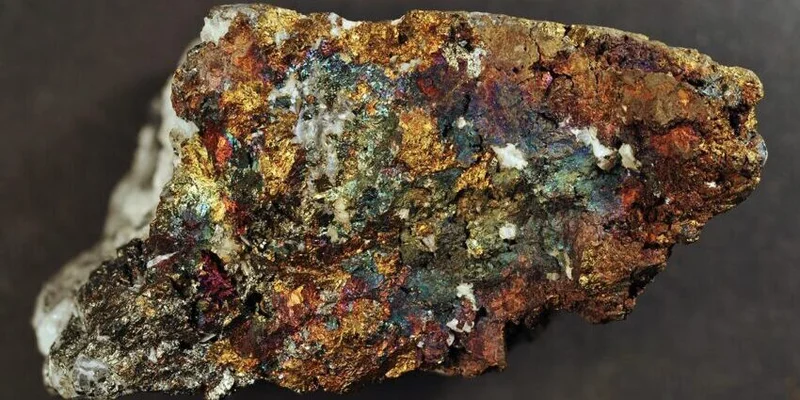Let’s be clear about what just happened. This isn’t another boring trade spat. This isn’t just a headline about tariffs or a negotiating tactic that will be forgotten by the next news cycle. What we are witnessing, right now, is a tectonic shift in global power. China just played a card it has been holding for decades, and it’s a move that fundamentally redefines the 21st-century battlefield.
Forget oil. Forget steel. The new currency of power, the very lifeblood of the future we are all so excited to build, is a handful of obscure metals with names like ytterbium and dysprosium. And China has just reminded the world that it controls the bank.
When I first read the announcement from the Chinese Ministry of Commerce, I honestly had to sit back and just process the sheer audacity of it. The reality of how China tightens export controls on rare-earth metals: Why this matters is staggering. They’ve restricted exports on 12 of the 17 rare-earth metals, plus the technology to even process them. This is the kind of move that historians will write about. It’s a quiet, bureaucratic announcement—"announcement number 61 of 2025"—that will echo louder than a thousand cannons. It’s the modern equivalent of a nation seizing control of the world’s major shipping lanes overnight.
The Unseen Foundation of Tomorrow
So, what are these things? Rare-earth metals—let's simplify this—are essentially the indispensable vitamins of modern technology. They're not "rare" in the sense that they don't exist, but they are incredibly difficult and messy to mine and process into a usable form. You don't need tons of them, but without a tiny pinch, the entire recipe for our future falls apart.
Your electric car? The powerful, lightweight magnets in its motor depend on them. The F-35 fighter jet, the pinnacle of American military might? It’s packed with nearly half a ton of rare-earth materials. The missile guidance systems, the submarine sonar, the AI chips that will power the next generation of intelligence—all of it, every single piece of groundbreaking tech, is critically dependent on this group of elements. China processes about 90% of the global supply. Let that number sink in. Ninety percent.
This isn’t just a supply chain issue; it’s a choke point. Imagine trying to build a skyscraper, but a single company owns 90% of the world's concrete and all the factories that can produce it. That's the power we're talking about. This is a strategic masterclass in long-term thinking, a patient accumulation of power that has been happening in plain sight while the rest of us were distracted by software and social media. How did we, the collective West, become so utterly dependent on a single source for the literal building blocks of our own security and progress? And what does this stunning move force us to do now?

This is a wake-up call. It’s a declaration that the new great power competition won’t be fought over territory, but over the periodic table itself.
A Geopolitical Masterstroke
The timing is just exquisite. With trade talks looming and President Trump scheduled to meet with President Xi, this move is a cannon shot across the bow. The immediate financial implications were clear, as headlines announced that Rare earth stocks jump after Trump says China holding world captive with its strict controls. It’s a clear, unambiguous message: "You have your semiconductor restrictions, but we control the physical matter that makes your entire defense and green-tech industry possible." It completely reframes the negotiation before anyone even sits down at the table. The restrictions don't even fully kick in until December 1st, giving the world a few short months to contemplate its vulnerability.
Beijing cites "national security" as the reason, and while that’s the standard diplomatic language, the subtext is screaming. They’re effectively saying that the flow of these materials will now be dictated by their strategic interests. Want to build next-gen military hardware? You’ll need a license from Beijing, and you’ll have to explain exactly what you’re doing with it. This creates a terrifying bottleneck for the U.S. defense industry, which, as Gracelin Baskaran from CSIS points out, is already struggling to keep pace.
This is the kind of long-game strategy that is both terrifying and, from a purely intellectual standpoint, deeply impressive. It’s a paradigm shift—we’ve moved from an era of competing to build the best technology to an era of competing for the right to build it at all. This isn't just about economic leverage; it's about controlling the pace of innovation itself. Who gets to build the future faster? Right now, China has its hand firmly on the throttle.
So what happens next? Does this trigger a frantic, worldwide scramble for new sources? A new "space race," but this time directed downwards, into the earth's crust, and inwards, into the labs of materials scientists pioneering new recycling techniques and alternative materials? It has to, right? Innovation doesn’t just happen in a vacuum; it’s often born from necessity. And we are now facing one of the greatest technological necessities of our generation.
We Just Entered a New Era
This isn't a story about doom and gloom. It's a story about a challenge. For decades, we’ve enjoyed the fruits of a globalized supply chain that made everything cheaper and more accessible. That era is over. We’re now seeing the weaponization of that interdependence. But humanity’s greatest leaps have always come in response to immense pressure. This is that moment for materials science, for recycling technology, and for a radical rethinking of what it means to be technologically sovereign. The game has changed. The question is, are we ready to play?









